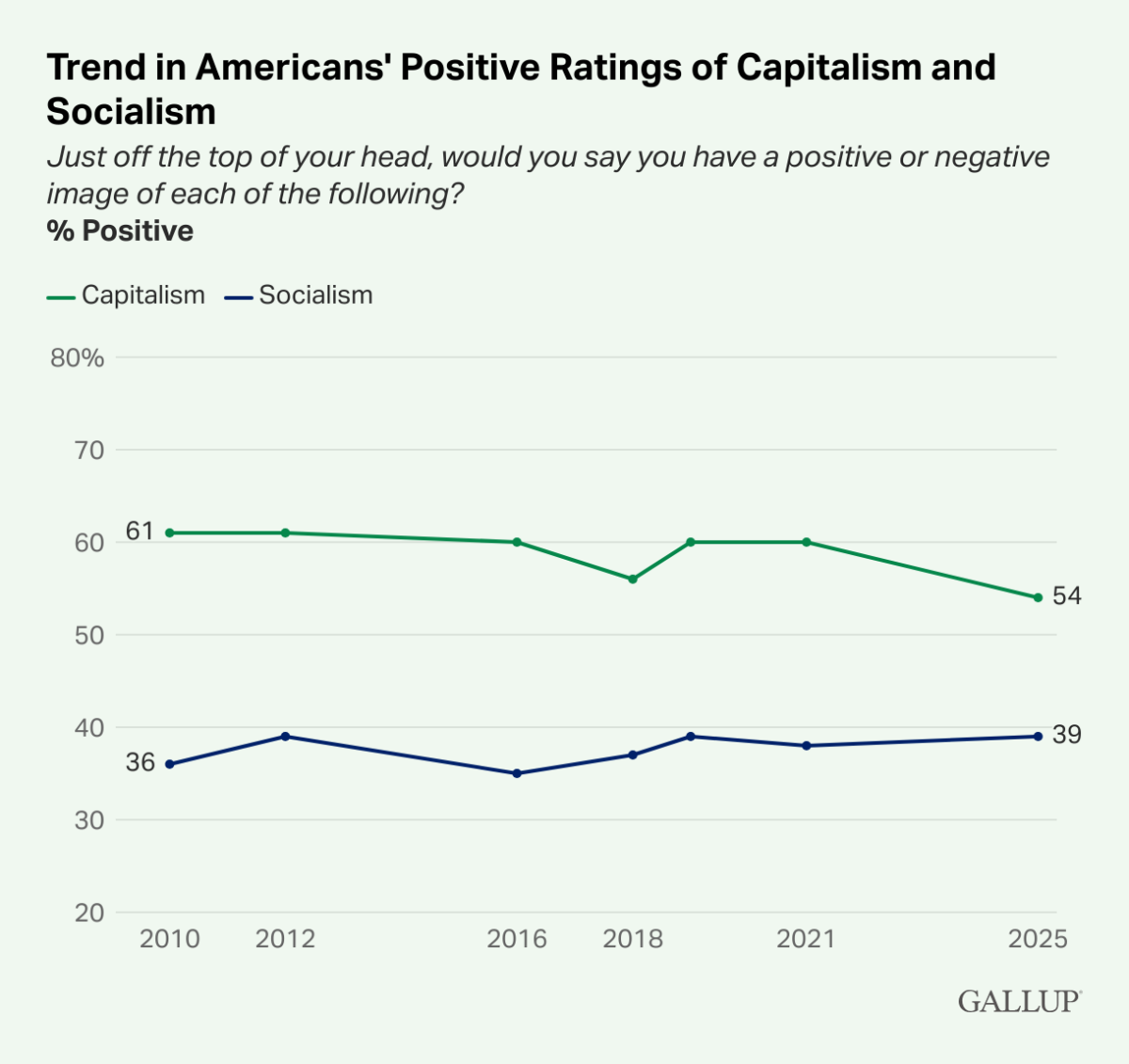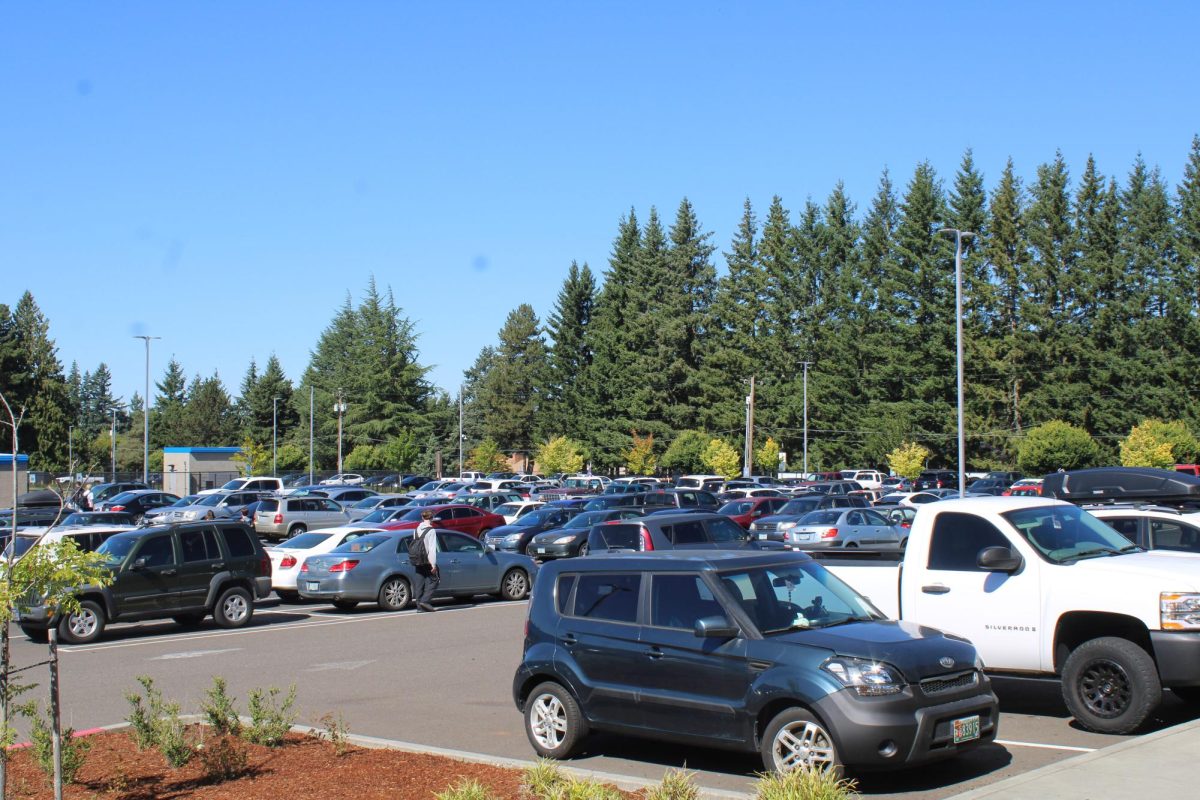In the United States, we live under a capitalist system, which is defined as a system in which a country’s trade and industry are controlled by private individuals for the profit of those individuals. There has been historical discontent with capitalism throughout history, but it has largely stayed the system of most of the world, with the biggest system to challenge capitalism being socialism, which is defined as a system of social organization in which the means of production, distribution, and exchange are owned and regulated by the community for the benefit of the community. Throughout American history, capitalism has been widely supported, with the exception of certain labor or social movements, with support especially being prevalent due to fears of socialism and communism created by red scares and the Cold War. While support for capitalism has been a non-partisan issue in America, recent polling shows that support for capitalism has reached an all time low of 54% according to Gallup polling, with partisan divide over the issue furthering as well, with Republicans rising in support to 74% and Democrats declining in support to 42%.
While support for capitalism as a whole is at an all-time low, certain parts of capitalism still have widespread support among the public. The majority of Americans support small businesses at 95% and free enterprise at 81%. Meanwhile, views of big business are at an all-time low of 37%, with it also reflecting the partisan divide of capitalism support, with 60% of Republicans supporting big business, while only 17% of Democrats support big business. This shows not a dislike of capitalism, but rather a dislike of corporatism, which is a political theory defined as a society that is organized between industrial and professional corporations that hold political power and control over persons and activities in their jurisdiction, often done through monopoly and corruption. While many argue capitalism can and should be reformed in order to stop the wealth gap and poverty created by corporatism, many on the left argue that corporatism is the inevitable outcome of capitalism due to corruption and monopoly, and so, according to them, it cannot be fixed. This is why some Americans look towards socialism, but polling for socialism has stayed steady over the years at around 39%, with Republicans having a huge dislike with only 14% support, and Democrats having a more positive view of 66% support.
The majority support for socialism within the Democratic Party has also led to the rise of many officials being a part of the Democratic Socialists of America, which is an organization that advocates for the replacement of Capitalism with a Democratic Socialist system. This includes politicians such as Bernie Sanders, Alexandria Ocasio-Cortez, and new faces such as New York City Democratic mayoral candidate Zohran Mamdani and former Democratic nominee for the mayor of Minneapolis Omar Fateh. These are all highly progressive politicians, but it is considered misleading by many on the left for these candidates to call themselves socialists, because none of them advocate for the seizure of the private industry to give to the people. Many believe a more accurate term to describe these politicians would be Social Democrats, who, instead of revolution in order to replace capitalism, believe in gradual reform of the system, such as an increased welfare state, increased wealth taxes, and increased regulations on big business. The large unpopularity of the Democratic party as a whole has led to the rise of these politicians as well, with moderate candidates like Hilary Clinton and Kamala Harris losing against Trump contributing to the idea that Democrats need to choose a much more progressive candidate, which is causing conflict in the party across many states and nationally as the current frontrunner for the 2028 Democratic presidential nominee looks to be the governor of California Gavin Newsom, who many consider to be too moderate.
While it is unlikely that we will be seeing any large changes to our economic system due to the fact that capitalism’s biggest competitor, socialism, still lacks a majority of American support, the decline in support for capitalism will likely lead to more progressive politicians appearing, potentially creating reform in our economy that could satisfy many of the issues that Americans currently face. We could see a shift away from the red scare fear of socialism and towards a rebranding of the term into a more “social democratic” lens in order to gain reform of capitalism and fundamentally change the Democratic party into a much more progressive force. With infighting currently going on between progressive and moderate Democrats, such as endorsing Zohran Mamdani or the revoking of Omar Fateh’s Democratic endorsement, only time will tell if progressives will gain a strong enough foothold in order to capitalize on capitalism’s lowered support in the next election.








